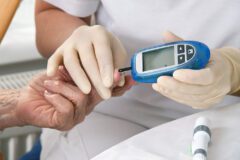 The muscular system with the human body is very complex and all of it works in concert in a way that science is a long way of totally comprehending. This system consists of the muscles and joints which are operated by the surroundings and the CNS. When this all runs with one another, we have no issues and will move about without any pain or uncomfortableness. It is once something is out which we can begin to have challenges with motion that can lead to signs and symptoms that are uncomfortable or painful. Many various health care professionals are concerned with and give thought to these movement issues or difficulties and utilize various methods to take care of the problems which could arise. A lot of the techniques are going to do with movement patterns, facilitation and inhibition of the muscles or groups of muscles as well as the role of fascia as well as the nerves in movement behaviours. It is claimed by the advocates of diverse strategies which difficulties with any one of these systems or the interaction of such systems may lead to everything from a painful foot to back pain to migraines. In the more extreme […] read more
The muscular system with the human body is very complex and all of it works in concert in a way that science is a long way of totally comprehending. This system consists of the muscles and joints which are operated by the surroundings and the CNS. When this all runs with one another, we have no issues and will move about without any pain or uncomfortableness. It is once something is out which we can begin to have challenges with motion that can lead to signs and symptoms that are uncomfortable or painful. Many various health care professionals are concerned with and give thought to these movement issues or difficulties and utilize various methods to take care of the problems which could arise. A lot of the techniques are going to do with movement patterns, facilitation and inhibition of the muscles or groups of muscles as well as the role of fascia as well as the nerves in movement behaviours. It is claimed by the advocates of diverse strategies which difficulties with any one of these systems or the interaction of such systems may lead to everything from a painful foot to back pain to migraines. In the more extreme […] read more
Last Updated:
June 4, 2025
- Allergy (1)
- Arthritis (4)
- Cancer (1)
- Children (11)
- Diabetes (5)
- Eye (2)
- Gastrointestinal (6)
- Heart (2)
- Infectious Diseases (9)
- Kidney (2)
- Neurology (12)
- Headaches (2)
- Movement Disorders (3)
- Oral (2)
- Orthopaedic (85)
- Foot Problems (76)
- Hand Problems (1)
- Knee Problems (3)
- Skin Conditions (9)
- Sleep (4)
- Vascular (2)
Inhibition of the Muscles
 The muscular system with the human body is very complex and all of it works in concert in a way that science is a long way of totally comprehending. This system consists of the muscles and joints which are operated by the surroundings and the CNS. When this all runs with one another, we have no issues and will move about without any pain or uncomfortableness. It is once something is out which we can begin to have challenges with motion that can lead to signs and symptoms that are uncomfortable or painful. Many various health care professionals are concerned with and give thought to these movement issues or difficulties and utilize various methods to take care of the problems which could arise. A lot of the techniques are going to do with movement patterns, facilitation and inhibition of the muscles or groups of muscles as well as the role of fascia as well as the nerves in movement behaviours. It is claimed by the advocates of diverse strategies which difficulties with any one of these systems or the interaction of such systems may lead to everything from a painful foot to back pain to migraines. In the more extreme […] read more
The muscular system with the human body is very complex and all of it works in concert in a way that science is a long way of totally comprehending. This system consists of the muscles and joints which are operated by the surroundings and the CNS. When this all runs with one another, we have no issues and will move about without any pain or uncomfortableness. It is once something is out which we can begin to have challenges with motion that can lead to signs and symptoms that are uncomfortable or painful. Many various health care professionals are concerned with and give thought to these movement issues or difficulties and utilize various methods to take care of the problems which could arise. A lot of the techniques are going to do with movement patterns, facilitation and inhibition of the muscles or groups of muscles as well as the role of fascia as well as the nerves in movement behaviours. It is claimed by the advocates of diverse strategies which difficulties with any one of these systems or the interaction of such systems may lead to everything from a painful foot to back pain to migraines. In the more extreme […] read more
Do Germs Really Cause Disease?
 Germ Theory is essentially the idea that germs cause disease. You would think that this notion is simple and not necessarily marked by controversy, but there is a tiny and vocal group of people that are convinced this is not true and that these germs are due to the disease and not the reason for the condition. The germ theory of disease will be based upon the concept that microorganisms will invade humans and will cause infectious illnesses. These micro-organisms are ‘germs’ such as bacterium, fungus and also viruses. The theory may be tracked back to Louis Pasteur who was the first person to demonstrate that with his experiments that diseases may be prevented simply by stopping germs through cleansing. Later on Robert Koch designed his conditions which grew to become referred to as Koch’s postulates that have been utilized to demonstrate that an illness is caused by a particular micro-organism. While such postulates were important at that time it soon had been evident that a number of infectious germs had been accountable for causing a particular illness, they did not fulfill all the Koch’s postulates. It was for the reason that a large number of people might be asymptomatic […] read more
Germ Theory is essentially the idea that germs cause disease. You would think that this notion is simple and not necessarily marked by controversy, but there is a tiny and vocal group of people that are convinced this is not true and that these germs are due to the disease and not the reason for the condition. The germ theory of disease will be based upon the concept that microorganisms will invade humans and will cause infectious illnesses. These micro-organisms are ‘germs’ such as bacterium, fungus and also viruses. The theory may be tracked back to Louis Pasteur who was the first person to demonstrate that with his experiments that diseases may be prevented simply by stopping germs through cleansing. Later on Robert Koch designed his conditions which grew to become referred to as Koch’s postulates that have been utilized to demonstrate that an illness is caused by a particular micro-organism. While such postulates were important at that time it soon had been evident that a number of infectious germs had been accountable for causing a particular illness, they did not fulfill all the Koch’s postulates. It was for the reason that a large number of people might be asymptomatic […] read more
Understanding Alzheimer’s Disease
 Alzheimer’s disease is easily the most common cause of dementia in the older people with the likelihood of developing it doubling each and every 10 years after age of 65. This is a gloomy and relentless neurological disorder which is characterised by progressive multiple cognitive failures (such as loss of memory as well as affected thinking), disorientation about space and time, a language dysfunction, a change in personality, significant mood changes and an incapacity to carry out basic daily tasks. It is estimated to have an effect on about 4% of those >85yrs. The cause of Alzheimer’s disease isn’t crystal clear but may well be associated with the increase in the production or accumulation of beta-amyloid protein which can lead to nerve cell death. Several faults in chromosomes have been found. Detecting Alzheimer’s disease is actually difficult during the early phases because the onset is typically insidious. Commonly a number of the simple beginning signs and symptoms of loss of memory are certain to get put down to a uncomplicated lapse of memory. The first features of Alzheimer’s begin with a loss of recent memory, particularly the forgetfulness of a recent occasion. At the outset, the long term memory is […] read more
Alzheimer’s disease is easily the most common cause of dementia in the older people with the likelihood of developing it doubling each and every 10 years after age of 65. This is a gloomy and relentless neurological disorder which is characterised by progressive multiple cognitive failures (such as loss of memory as well as affected thinking), disorientation about space and time, a language dysfunction, a change in personality, significant mood changes and an incapacity to carry out basic daily tasks. It is estimated to have an effect on about 4% of those >85yrs. The cause of Alzheimer’s disease isn’t crystal clear but may well be associated with the increase in the production or accumulation of beta-amyloid protein which can lead to nerve cell death. Several faults in chromosomes have been found. Detecting Alzheimer’s disease is actually difficult during the early phases because the onset is typically insidious. Commonly a number of the simple beginning signs and symptoms of loss of memory are certain to get put down to a uncomplicated lapse of memory. The first features of Alzheimer’s begin with a loss of recent memory, particularly the forgetfulness of a recent occasion. At the outset, the long term memory is […] read more
Understanding Erthromelalgia
 Erythromelalgia is a very rare painful condition which can be challenging to deal with and typically affects the feet and the hands. This condition is identified through the symptoms of redness, warmth as well as burning discomfort. The attacks for this disorder are intermittent and last anywhere from minutes to several days. Attacks will most likely start out with a basic scratching, but then moves on to severe pain and a burning discomfort. The feet or hands will become warmer, sensitive and bloated as well as look a reddish hue. The episodes are very crippling and can have a critical influence on the individual with an affect on the standard of life and the capability to execute some of the typical activities of daily life. There are two types of erythromelalgia. One is the primary kind which tends to have an impact on younger individuals and it is most probably caused by a inherited genetic trait which make nerve cells more active. The alternative variety usually have an effect on older persons and is resulting from an underlying condition for example diabetes, rheumatoid arthritis, some blood problems as well as a side affect to specific drug treatments. There are a […] read more
Erythromelalgia is a very rare painful condition which can be challenging to deal with and typically affects the feet and the hands. This condition is identified through the symptoms of redness, warmth as well as burning discomfort. The attacks for this disorder are intermittent and last anywhere from minutes to several days. Attacks will most likely start out with a basic scratching, but then moves on to severe pain and a burning discomfort. The feet or hands will become warmer, sensitive and bloated as well as look a reddish hue. The episodes are very crippling and can have a critical influence on the individual with an affect on the standard of life and the capability to execute some of the typical activities of daily life. There are two types of erythromelalgia. One is the primary kind which tends to have an impact on younger individuals and it is most probably caused by a inherited genetic trait which make nerve cells more active. The alternative variety usually have an effect on older persons and is resulting from an underlying condition for example diabetes, rheumatoid arthritis, some blood problems as well as a side affect to specific drug treatments. There are a […] read more
Common Disorders of the Toenails
 The toenails in the feet can have a whole lot of various problems that may affect them and be uncomfortable. The toenails get exposed to a great deal of pressure as well as load from shoes and daily activities. The toe nails get bumped around significantly and get objects dropped about them a lot. It’s no surprise there are a great number of conditions that podiatric physicians treat in their patients with problems of the nails. A ingrown toenail is among the most well-known painful problem with the feet. An ingrown nail occurs when the corner of the nail plate permeates the skin and creates an inflammatory reaction. This is in most cases due to a rounded appearance to the nail plate along with a inadequate toenail trimming technique which leaves a sharp edge. An expert podiatric doctor can readily take away that offending piece of toe nail and provide virtually instant comfort with this. However, the condition does are inclined to reoccur, so a minor operation to take out the edge of the nail plate should be considered. Probably one of the most prevalent factors that cause symptoms around the nails may be a disorder that is technically named […] read more
The toenails in the feet can have a whole lot of various problems that may affect them and be uncomfortable. The toenails get exposed to a great deal of pressure as well as load from shoes and daily activities. The toe nails get bumped around significantly and get objects dropped about them a lot. It’s no surprise there are a great number of conditions that podiatric physicians treat in their patients with problems of the nails. A ingrown toenail is among the most well-known painful problem with the feet. An ingrown nail occurs when the corner of the nail plate permeates the skin and creates an inflammatory reaction. This is in most cases due to a rounded appearance to the nail plate along with a inadequate toenail trimming technique which leaves a sharp edge. An expert podiatric doctor can readily take away that offending piece of toe nail and provide virtually instant comfort with this. However, the condition does are inclined to reoccur, so a minor operation to take out the edge of the nail plate should be considered. Probably one of the most prevalent factors that cause symptoms around the nails may be a disorder that is technically named […] read more
Different Types of Foot Orthotics
How to cure snoring
 We try to laugh it off whenever we come across a filler in the magazines or newspapers about a couple getting divorced because one of the spouses was snoring. Actually the problem of snoring is more serious. It is not a mere nuisance. Snoring can lead to serious social and health consequences. Increased risk of diabetes, stroke, heart disease and high blood pressures are linked with snoring. The sleeping partner and the snorer both lose their sleep due to snoring. In order to stop the snoring, the snorer might wake up often and this also leads to disturbances in the sleeping pattern of the spouse. During the day, the couples face lack of productivity, irritability and sleepiness due to the disturbed sleep caused by snoring. Snoring can cause one of the spouses to sleep in another room, leading the relationship to go sour. Social and physical intimacies of a couple are also affected by the snoring. The couple becomes unhappy and the snoring partner feels isolated. There are different variations of snoring. Mild snoring can be cured by waking up and turning to the opposite side. If a person continues to snore, despite the changes in sleeping positions, then it […] read more
We try to laugh it off whenever we come across a filler in the magazines or newspapers about a couple getting divorced because one of the spouses was snoring. Actually the problem of snoring is more serious. It is not a mere nuisance. Snoring can lead to serious social and health consequences. Increased risk of diabetes, stroke, heart disease and high blood pressures are linked with snoring. The sleeping partner and the snorer both lose their sleep due to snoring. In order to stop the snoring, the snorer might wake up often and this also leads to disturbances in the sleeping pattern of the spouse. During the day, the couples face lack of productivity, irritability and sleepiness due to the disturbed sleep caused by snoring. Snoring can cause one of the spouses to sleep in another room, leading the relationship to go sour. Social and physical intimacies of a couple are also affected by the snoring. The couple becomes unhappy and the snoring partner feels isolated. There are different variations of snoring. Mild snoring can be cured by waking up and turning to the opposite side. If a person continues to snore, despite the changes in sleeping positions, then it […] read more
New Anti-viral drug for COVID-19
 The COVID-19 outbreak has wreaked mayhem all over the world, leading to substantial loss-of-life, medical and financial costs. The roll out of the vaccination program has provided some light at the end of the tunnel and because the vaccination program spreads out, countries about the entire world are commencing to open up. The ending of lockdowns isn’t without having its problems and you will find increases in COVID cases as different countries decrease restrictions. The immunization roll out has decreased the potential risks of the seriousness of the infection along with reduced the chance of hospitalization and dying with those who are vaccinated. Cases continue to be taking place in the vaccinated, but the great majority and also the more life-threatening cases are in people who are not vaccinated. The health care system has become better at managing patients with a coronavirus infection as the understanding about the illness improves plus more treatment methods are considered. Various therapies currently have different amounts of data that support them and there are already numerous false starts using just what appear to be encouraging treatment methods do not offer the gains which were predicted. Plenty of falsehoods and poor science in addition underpins […] read more
The COVID-19 outbreak has wreaked mayhem all over the world, leading to substantial loss-of-life, medical and financial costs. The roll out of the vaccination program has provided some light at the end of the tunnel and because the vaccination program spreads out, countries about the entire world are commencing to open up. The ending of lockdowns isn’t without having its problems and you will find increases in COVID cases as different countries decrease restrictions. The immunization roll out has decreased the potential risks of the seriousness of the infection along with reduced the chance of hospitalization and dying with those who are vaccinated. Cases continue to be taking place in the vaccinated, but the great majority and also the more life-threatening cases are in people who are not vaccinated. The health care system has become better at managing patients with a coronavirus infection as the understanding about the illness improves plus more treatment methods are considered. Various therapies currently have different amounts of data that support them and there are already numerous false starts using just what appear to be encouraging treatment methods do not offer the gains which were predicted. Plenty of falsehoods and poor science in addition underpins […] read more
What happens in diabetes if you do not control the blood sugar levels?
 Diabetes mellitus is a common problem in society today and is becoming more and more common. The affects of the high blood glucose levels include both acute and chronic implications if the person with diabetes doesn’t keep to the guidelines and proposals to maintain those blood sugar levels at bay. These kinds of approaches include exercise and diet along with prescription medication and insulin depending on the type of diabetes that they have. The acute consequences may include a hyperglycaemic episode where the blood glucose levels go up. The symptoms with this feature a fruity-smelling breath, nausea, dry mouth which leads to confusion and eventually a coma. The contrary is a hypoglycaemic episode when the blood glucose levels decline which ends up in the signs and symptoms of perspiring, feeling fatigued, dizziness, feeling hungry, a prickling with the lips along with a feeling shaky or trembling along with a fast or thumping heartbeat. Additionally they are likely to become easily irritated, tearful, or anxious. Both of these hypo- and hyper- episodes ought to be taken care of quickly. Generally, if the blood glucose levels are higher too often then there is a greater chance of getting the more long-term problems […] read more
Diabetes mellitus is a common problem in society today and is becoming more and more common. The affects of the high blood glucose levels include both acute and chronic implications if the person with diabetes doesn’t keep to the guidelines and proposals to maintain those blood sugar levels at bay. These kinds of approaches include exercise and diet along with prescription medication and insulin depending on the type of diabetes that they have. The acute consequences may include a hyperglycaemic episode where the blood glucose levels go up. The symptoms with this feature a fruity-smelling breath, nausea, dry mouth which leads to confusion and eventually a coma. The contrary is a hypoglycaemic episode when the blood glucose levels decline which ends up in the signs and symptoms of perspiring, feeling fatigued, dizziness, feeling hungry, a prickling with the lips along with a feeling shaky or trembling along with a fast or thumping heartbeat. Additionally they are likely to become easily irritated, tearful, or anxious. Both of these hypo- and hyper- episodes ought to be taken care of quickly. Generally, if the blood glucose levels are higher too often then there is a greater chance of getting the more long-term problems […] read more
What is Vaccine-induced Thrombotic Thrombocytopenia?
 Vaccine-induced Thrombotic Thrombocytopenia (VITT) is an extremely uncommon, but critical illness that got a lot of news and social media attention in the framework of vaccinations for COVID-19. This recently identified condition differs from other types of blood clotting problems as it’s brought about by the immune system’s response to the COVID-19 vaccination, most frequently Ad26.COV2.S (Johnson & Johnson) and ChAdOx1 nCoV-19 (AstraZeneca). Both these vaccinations use adenoviral vectors (the mRNA vaccinations coming from Moderna, don’t employ that vector). Clinically it is very comparable to the autoimmune heparin-induced thrombocytopenia (HIT). Vaccine-induced Thrombotic Thrombocytopenia is thought to be due to the autoantibodies that happen to be directed towards platelet factor 4 which invokes platelets and results in thrombosis. The characteristic feature is most of these blood clots which are often cerebral or in the abdomen. VITT seems to happen in 4-6 individuals for every million vaccine dosages provided. The probability is less likely after the 2nd dose. The original death rate had been as high as 50% in individuals who had the VITT, but most do now get better when it is diagnosed promptly, and appropriate treatment started. There are no evident risk factors have yet been observed, but it does […] read more
Vaccine-induced Thrombotic Thrombocytopenia (VITT) is an extremely uncommon, but critical illness that got a lot of news and social media attention in the framework of vaccinations for COVID-19. This recently identified condition differs from other types of blood clotting problems as it’s brought about by the immune system’s response to the COVID-19 vaccination, most frequently Ad26.COV2.S (Johnson & Johnson) and ChAdOx1 nCoV-19 (AstraZeneca). Both these vaccinations use adenoviral vectors (the mRNA vaccinations coming from Moderna, don’t employ that vector). Clinically it is very comparable to the autoimmune heparin-induced thrombocytopenia (HIT). Vaccine-induced Thrombotic Thrombocytopenia is thought to be due to the autoantibodies that happen to be directed towards platelet factor 4 which invokes platelets and results in thrombosis. The characteristic feature is most of these blood clots which are often cerebral or in the abdomen. VITT seems to happen in 4-6 individuals for every million vaccine dosages provided. The probability is less likely after the 2nd dose. The original death rate had been as high as 50% in individuals who had the VITT, but most do now get better when it is diagnosed promptly, and appropriate treatment started. There are no evident risk factors have yet been observed, but it does […] read more